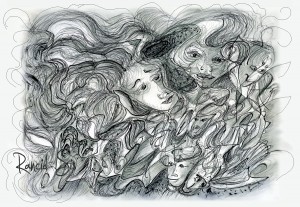 Cognitive Rehabilitation Therapy (CRT) is the process of relearning cognitive skills that have been lost or altered as a result of damage to brain cells/chemistry. If skills cannot be relearned, then new ones have to be taught to enable the person to compensate for their lost cognitive functions. The process of CRT comprises 4 components: education about cognitive weaknesses and strengths (identify the problem); process training which is the development of skills through direct retraining or practicing the underlying cognitive skills (resolve the problem); strategy training involves the use of environmental, internal and external strategies (compensating rather than resolving the problem); functional activities training which involves the application of the other three components in everyday life. The focus here is on real life improvements.
Cognitive Rehabilitation Therapy (CRT) is the process of relearning cognitive skills that have been lost or altered as a result of damage to brain cells/chemistry. If skills cannot be relearned, then new ones have to be taught to enable the person to compensate for their lost cognitive functions. The process of CRT comprises 4 components: education about cognitive weaknesses and strengths (identify the problem); process training which is the development of skills through direct retraining or practicing the underlying cognitive skills (resolve the problem); strategy training involves the use of environmental, internal and external strategies (compensating rather than resolving the problem); functional activities training which involves the application of the other three components in everyday life. The focus here is on real life improvements.
CRT strategies are directed to achieve functional changes by:
- Reinforcing, strengthening or establishing previously learned patterns of behavior.
- Establishing new patterns of cognitive activity or mechanisms to compensate for impaired neurological systems.
- Interventions are tailored to help the individual be as independent as possible in the management of his or her everyday routines and responsibilities in their home and community.
What to expect:
You may be asked to participate in an evaluation, which will help to obtain, interpret and understand your unique needs and concerns and to tailor a plan which will help you learn to use tools and strategies to be as independent as you possibly can after your injury or illness.
You will likely participate in standardized and/or non-standardized assessments that may include questionnaires, testing, interview, and/or observation to gain the greatest understanding of your abilities and/or limitations in managing your everyday routines and responsibilities.
The therapist will develop a treatment plan to guide all of the activities that are selected to help you remediate or compensate for your difficulties. All activities you participate in will be specially chosen for your unique needs and will be very practical in helping you to best meet the demands of your life. Your therapist will continually assess your progress and revise your goals based on your progress.
The aim of CRT is to enhance your functional competence in real world situations by direct retraining, compensatory strategies or cognitive tools. This therapy helps individuals make most of abilities and increase self-reliance and self-confidence by providing training, resources, information and adaptive equipment. It involves you in experiences that require you to interact, analyze, question, reflect and connect what you have learned in new situations in the community.
